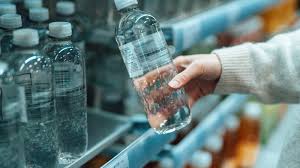Governments failure to improve public water supplies has led to a surge in global bottled water consumption that is now putting the U.N. sustainable development goal of safe drinking water by 2030 under threat, a U.N. academic think tank said on Thursday.
According to the U.N. University’s Institute for Water, Environment and Health, the bottled water market saw 73% growth from 2010 to 2020, and consumption is on track to increase from around 350 billion litres in 2021 to 460 billion litres by 2030.
“The rise in bottled water consumption reflects decades of limited progress in and many failures of public water supply systems,” the institute’s director Kaveh Madani said in statement.
About 2.2 billion people do not have access to safe drinking water, with the number of people who had access growing by only 4% between 2016 and 2020, a UN estimate shows.
The UNU report said developing nations depend on bottled water to make up this shortfall with Egypt, that is facing water scarcity, been the fastest growing market for treated bottled water from 2018 to 2021.
Read also: Boston seeks to ban use of fossil fuel in new buildings
The report also shows Singapore and Australia were the biggest per capita consumers of bottled water at 1,129 litres and 504 litres a year respectively while Malaysia led developing countries in per capita consumption, at just under 150 litres.
More than a third of Americans said they use bottled water as their main water source, the report said.
“To a somewhat surprising extent, bottled water grew immensely over the last few decades while in the conventional and more reliable public and domestic drinking water supply, progress was slow paced,” said report co-author Vladimir Smakhtin of UNU-INWEH.
He said meeting the UN sustainable development goal of providing safe drinking water by 2030 is therefore under threat, as governments were too often leaving the provision of safe drinking water to private actors.
Story was adapted from Reuters.
